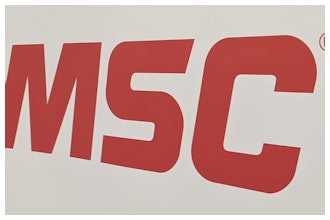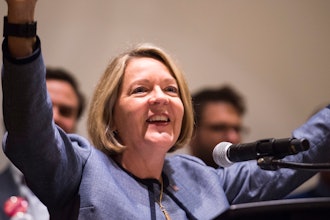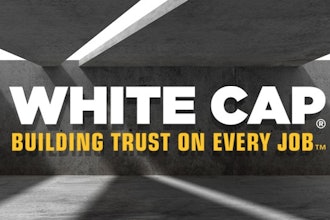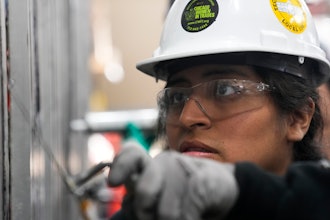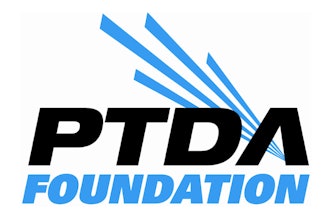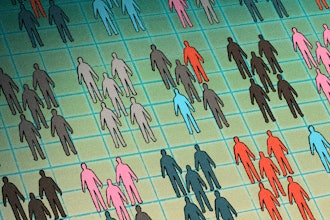
One of the key highlights of NAW’s 2022 Executive Summit in late January was a panel discussion between leaders of four prominent distribution firms: Graybar president and CEO Kathy Mazzarella, Motion president Randy Breaux, Benco Dental managing director Chuck Cohen and ORS/Medco president and CEO Kevin Short.
Mazzarella moderated the panel across a number of operational issues, but I was particularly glad the foursome discussed was mental health. It’s something I think is only sparingly mentioned by distribution CEOs, other executives and consultants at industry events, but deserves so much more attention.
After the group discussed ways technology has impacted their business, the topic moved on to culture and how those executives have managed company morale amid the lasting impacts of the COVID-19 pandemic and numerous supply chain chaos.
While emphasizing the challenges of checking in on the well-being of employees amid so many of them working remotely, Cohen mentioned, how it’s easier to pick up on signals when you’re working next to someone every day or every other day, but it’s so much harder when you’re only seeing employees through Zoom calls.
“They could be drinking to excess the other 23 hours of the day, and it’s hard to notice that,” Cohen noted.
That comment actually drew some laughter from the NAW crowd, as I’m certain they assumed Cohen was joking with exaggeration. That was until he followed by acknowledging “We had that, it’s very scary. I had a key associate who basically drank himself to death during COVID. It was…it was horrible.”
The ballroom quickly grew quiet, with the audience realizing the seriousness of the topic at that point. And it illustrated a hard reality: CEOs don’t know what they don’t know about their employees, and are generally privy only to a superficial view of how their workforce is doing from a mental health perspective.
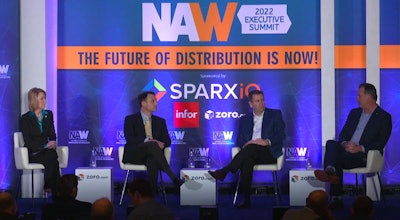 From Left: Graybar president and CEO Kathy Mazzarella, Motion president Randy Breaux, Benco Dental managing director Chuck Cohen and ORS/Medco president and CEO Kevin Short hold a panel discussion during NAW's 2022 Executive Summit on Jan. 26 in Washington, D.C.
From Left: Graybar president and CEO Kathy Mazzarella, Motion president Randy Breaux, Benco Dental managing director Chuck Cohen and ORS/Medco president and CEO Kevin Short hold a panel discussion during NAW's 2022 Executive Summit on Jan. 26 in Washington, D.C.
A little later Breaux detailed how, as Motion navigated how to regularly communicate with its employees in the early days of the pandemic, he started producing regular 5-7 minute videos to Motion employees for the purpose of “just to level-set with everybody about what’s going on, what are we going to do and how are we going to do it. People wanted to know.”
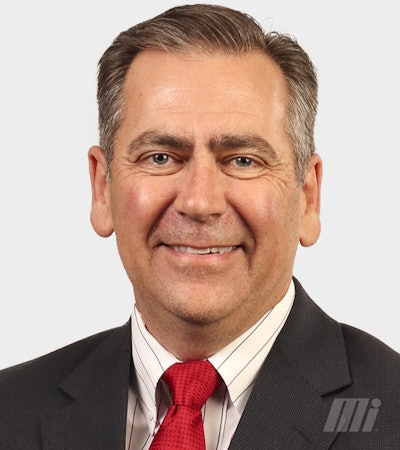 Randy Breaux
Randy Breaux
Bringing it back to the example Cohen mentioned, Breaux noted how in early December of 2020, his latest video addressed how “if any employee is struggling right now, reach out to somebody.”
“I’ll be doggone if I didn’t have one of our employees reach out and say, ‘I’m struggling. I don’t know how my kids are going to have a Christmas. I don’t know if I even want to live to see Christmas.’ We were able to reach out and give that individual some help. Little did we know, he was a vet, he had PTSD, he had stopped going to his counseling and so forth. And I don’t know what he would’ve done if he didn’t have the guts to reach out to me when I made the offer.”
The mental health thing is real, and it’s really up to all of us to dive in on that,” Breaux concluded.
Breaux is absolutely right in that it takes guts for individuals struggling with mental health to reach out for health, let alone their workplace superiors. And let’s face it, in a male-dominated field like industrial distribution, human stubbornness can be a negative trait when it comes to asking for help.
 Chuck Cohen
Chuck Cohen
“Most importantly I think is to get everyone comfortable with what used to be an uncomfortable conversation,” Cohen said. “How to have it is important. For a lot of our managers, the idea of even talking about mental health challenges or work-life balance or drinking too much — that’s a scary conversation, and I think, until this time, we’ve kind of avoided it. So really it’s about making sure to pick up on those clues, and making sure to get the person to the right place and defining mental health in the way that the person on the other end of the conversation defines it.”
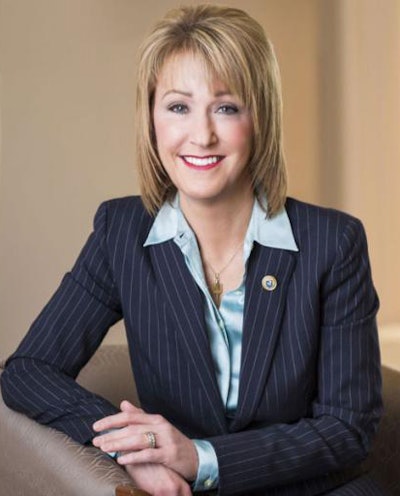 Kathy Mazzarella
Kathy Mazzarella
“I overshare that employees knew that I was under stress also,” the Graybar leader. “Not feeling sorry for myself, but just saying, you know, ‘I get lonely. I get worried. I have full confidence that we’re going to get through it, but we’re all in it together.’ So showing your humanity as a leader I think also helps people understand that it’s ok to talk about those issues that you’re concerned about and seek help.”
It was very refreshing to see these prominent distribution executives talk at-length about a topic that still carries a stigma of being uncomfortable to talk about. Executives in every industry love to talk about culture, but, at-large, don’t often touch on mental health and how to proactively help your employees with it. I’m certainly no expert on the topic, but I know that promoting good mental health isn’t the same as giving workers bonuses, allowing casual work attire or ordering in pizza for lunch. As Breaux hit on, it’s about honesty.
“I think that transparency with your employees provides mental health stability. If they know what the truth is and they know what’s going on and how you’re planning to deal with it, they can mentally figure it out,” he said. “We're very transparent in our organization so everyone can deal with the truth. I was once told, ‘Tell them the truth, they can handle that. What they can’t handle is not knowing what the truth is.’”
The full panel session can be viewed below, posted by NAW to its YouTube channel:











